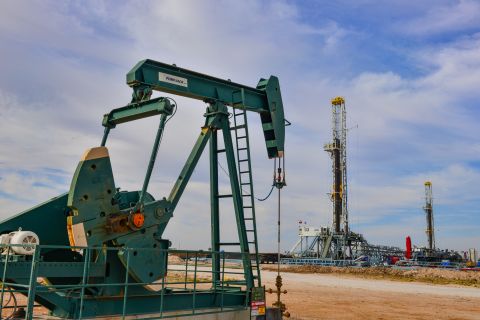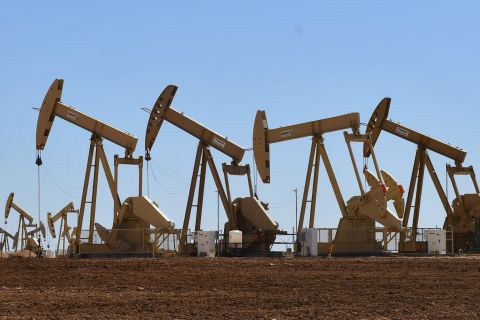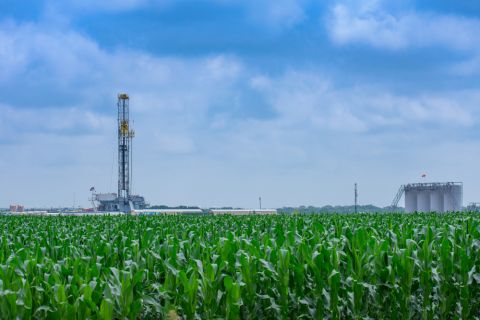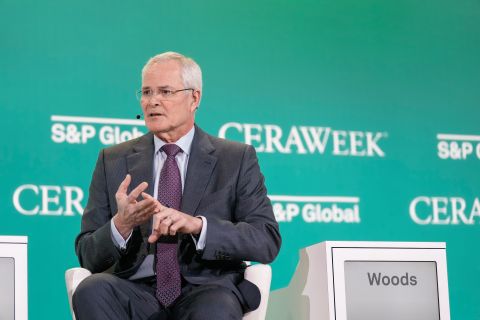"We're more positive about the future of the oil and gas industry than we've ever been," says William H. Walker, president of New Orleans-based investment-banking firm Howard Weil. "There's more capital discipline; both E&P and service companies now understand the significance of return on capital employed." With the quality of drilling prospects available still leaving something to be desired, more and more E&P companies like Apache Corp.-recognizing the importance of return on capital employed-are buying properties, high-grading them, then selling off noncore assets to other operators down the food chain, he says. Given this industry mindset, Walker believes there will continue to be a very active acquisition and divestiture market-involving either assets or companies-as E&P companies high-grade their drilling portfolios in an effort to improve returns. As all this M&A activity occurs, acquiring companies will need at some point to go to the equity markets to finance those purchases. "Recently, with interest rates being so incredibly low, many companies have availed themselves of the debt markets to make acquisitions, with the anticipation of going to the equity markets at a later date." As to the level of future energy-related equity transactions, the determining factors will be interest rates, stock prices and the overall market. Will sustained, strong natural gas prices fuel future equity deals? "They'll have some influence, but not a lot, because operators will have so much cash flow that they won't need to sell equity. If stock is sold, it will be related to a specific acquisition rather than selling stock just to pay down bank debt." Sums up Walker, "Return on capital employed will be the driver of future acquisitions and divestitures and capital-markets activity." Larry Benedetto, E&P analyst for Howard Weil, says there hasn't been a sizeable increase in upstream budgets in the face of recent high commodity prices because many producers feel there's going to be a very lucrative acquisitions market this year. "Acquiring companies will probably tend to focus more on natural gas assets because of the outlook for sustainable healthy pricing for that commodity versus oil," he says. He looks for natural gas prices to average $5.50 this year, $4.50 next year and $4 longer term. Walker cautions, however, that the industry should be very careful about what it wishes for, with respect to high natural prices. "Keep in mind that most oil and gas is found in areas where there are few votes and consumed in areas where there are a lot of votes. So the industry needs to be concerned about high spikes in natural gas prices in the winter and lack of deliverability; that could engender public outcry and Washington getting involved in the oil patch. Also, high natural gas prices make imported LNG a more viable alternative." -Brian A. Toal
Recommended Reading
Mighty Midland Still Beckons Dealmakers
2024-04-05 - The Midland Basin is the center of U.S. oil drilling activity. But only those with the biggest balance sheets can afford to buy in the basin's core, following a historic consolidation trend.
Life on the Edge: Surge of Activity Ignites the Northern Midland Basin
2024-04-03 - Once a company with low outside expectations, Surge Energy is now a premier private producer in one of the world’s top shale plays.
Enverus: 1Q Upstream Deals Hit $51B, but Consolidation is Slowing
2024-04-23 - Oil and gas dealmaking continued at a high clip in the first quarter, especially in the Permian Basin. But a thinning list of potential takeout targets, and an invigorated Federal Trade Commission, are chilling the red-hot M&A market.
Mesa III Reloads in Haynesville with Mineral, Royalty Acquisition
2024-04-03 - After Mesa II sold its Haynesville Shale portfolio to Franco-Nevada for $125 million late last year, Mesa Royalties III is jumping back into Louisiana and East Texas, as well as the Permian Basin.
CEO Darren Woods: What’s Driving Permian M&A for Exxon, Other E&Ps
2024-03-18 - Since acquiring XTO for $36 billion in 2010, Exxon Mobil has gotten better at drilling unconventional shale plays. But it needed Pioneer’s high-quality acreage to keep running in the Permian Basin, CEO Darren Woods said at CERAWeek by S&P Global.





